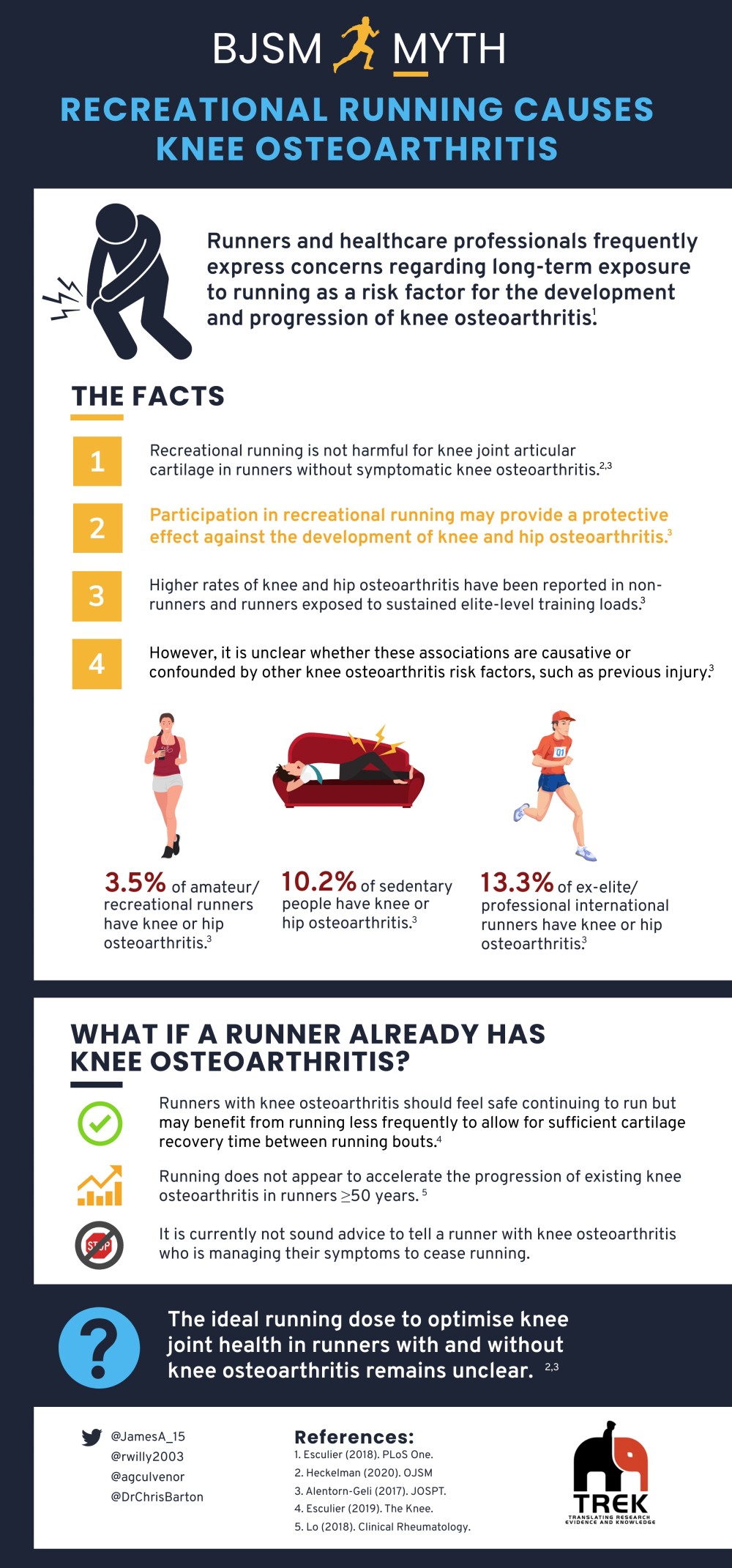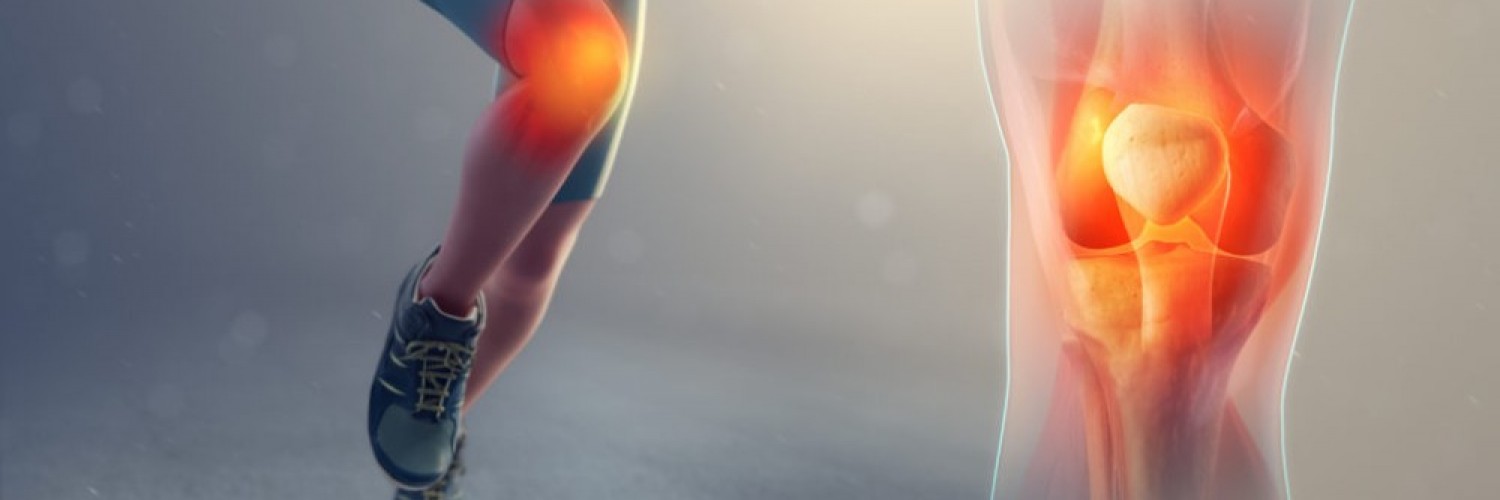Runners and healthcare professionals frequently express concerns regarding long-term exposure to running as a risk factor to the development and progression of knee osteoarthritis (1).
The facts:
- Recreational running is not harmful for knee joint articular cartilage in runners without symptomatic knee osteoarthritis (2,3)
- Participation in recreational running may provide protective effect against the development of knee and hip osteoarthritis (3)
- Higher rates of knee and hip osteoarthritis have been reported in non-runners and runners exposed to sustained elite-level training loads (3)
- However, it is unclear whether these associations are causative or confounded by other knee osteoarthritis factors, such as previous injury (3)
3.5% of amateur/recreational runners have knee or hip osteoarthritis (3)
10.2% of sedentary people have knee or hip osteoarthritis (3)
13.3% of ex-elite/professional international runners have knee or hip osteoarthritis (3)
What is a runner already has knee osteoarthritis?
- Runners with knee osteoarthritis should feel safe continuing to run but may benefit from running less frequently to allow for sufficient cartilage recovery time between running bouts (4)
- Running does not appear to accelerate the progression of existing knee osteoarthritis in runners > 50 years (5)
- It is currently not sound advice to tell a runner with knee osteoarthritis who is managing their symptoms to cease running
The ideal running dose to optimise knee joint health in runners with and without knee osteoarthritis remains unclear (2,3)
References:
1. Esculier (2018). PLoS One.
2. Heckelman (2020). OJSM
3. Alentorn-Geli (2017). JOSPT.
4. Esculier (2019). The Knee.
5. Lo (2018). Clinical Rheumatology.
You can find the authors on twitter:
@JamesA_15
@rwilly2003
@agculvenor
@DrChrisBarton
Click on the images below to expand.

